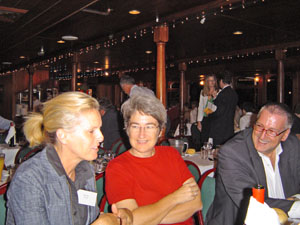I've finally written my review of the new Paatos album - this has been sitting here for some months now, and I just never got around to it. It's now been published on M/C Reviews, but here it is as well:
Dark Horse Running: Kallocain by Paatos
To be honest I would have expected a little more recognition for this band by now. With Stefan Dimle on bass duties and Reine Fiske of Landberk contributing the occasional song idea (as well as playing guitar on their debut CD), Paatos is well-connected in the Swedish Progressive Rock scene; what's more …













